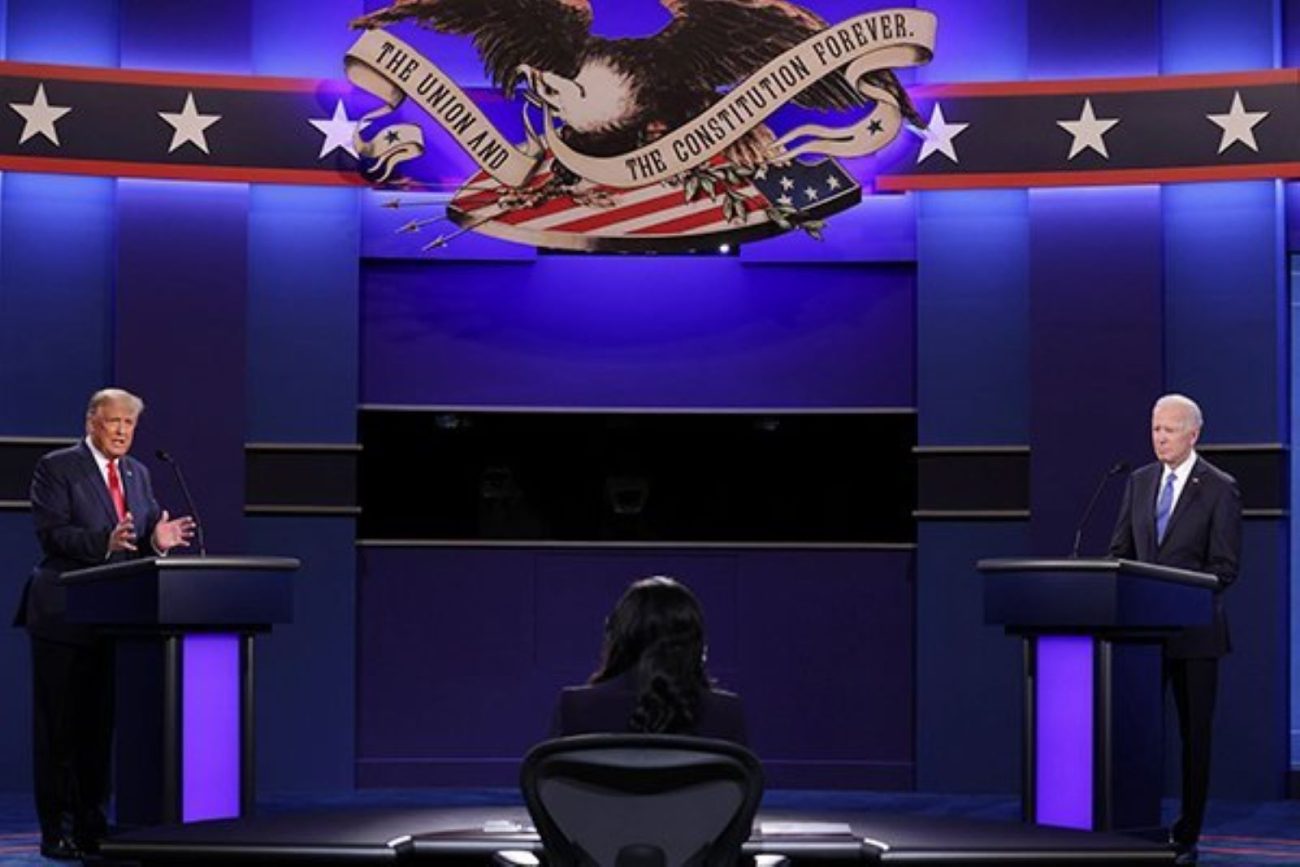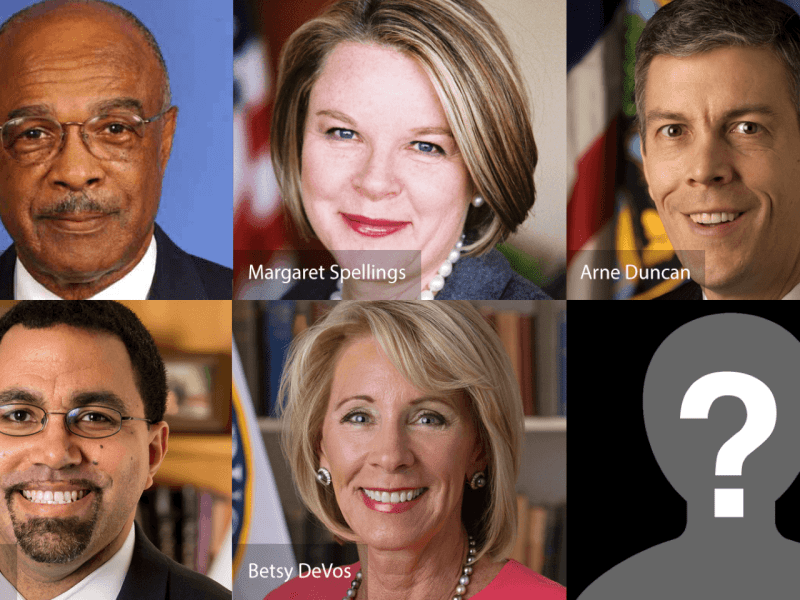How Could a Delayed Trump-Biden Transition Disrupt the Education Department?
Education Week | by Andrew Ujifusa | November 10, 2020
Tension is building in Washington about the transition between President Donald Trump, who continues to contest results of the Nov. 3 election, and President-elect Joe Biden. The administrator of the General Services Administration, the government agency that plays a key role in starting the transition process, has so far declined to do so, citing the need for a “clear” winner in the election. That’s led to growing speculation about how long it will be before the Trump-appointed GSA administrator gives the green light.
The U.S. Department of Education is not the largest or most politically fraught cabinet agency, but it will have to shift from one administration to another like all the others. The coronavirus pandemic might make this change more difficult. And the agency will be shifting from a Republican to a Democratic administration.
So how much could a delayed or blocked transition process affect the department as we get closer to Biden’s inauguration on Jan. 20?
On a scale of 1 to 10, with 1 representing no problems and 10 being a hair-on-fire disaster, a significant delay represents a 4, said Matt Frendewey, who worked for U.S. Secretary of Education Betsy DeVos early in her tenure.
The key to a good transition are the career staffers at the department—those who aren’t political appointees who change from administration to administration—Frendewey said. They help make sure that the three “waves” of transition personnel from the incoming administration can understand the inner workings of the department and ensure that statutory and other requirements carry over.
- In the first wave, he said, are people like Linda Darling-Hammond, who is reportedly leading Biden’s education transition team; Frendewey noted that her past transition-team work for Obama in 2008 would be quite valuable.
- Next comes folks who arrive right before or on Jan. 20 when Biden will be inaugurated. (Frendewey classified himself as part of this second wave.)
- Finally come the political appointees who take over major responsibilities at the department, such as overseeing civil rights or elementary and secondary education as Senate-confirmed assistant secretaries.
“They’ve probably spent months preparing for this,” said Frendewey of career staffers. “Their whole mission is to set aside any partisan differences they might privately hold and provide the folks who are coming on board with the challenges that are coming ahead.” A mass departure of career staff would be “detrimental” to any transition, he noted.
Marshall “Mike” Smith, who has worked on the education transition teams for previous Democratic presidents and also worked at the department, said a delayed transition only merits a 2.5 out of 10 on the hair-on-fire scale. Smith said he would only get truly nervous if a delay stretched into the first week of December, and even then, he said, “I’d have a ton of stuff done already.” And he said a transition team member who has relationships with department veterans and can dial them up for advice helps the process.
Ensuring that career staff can smoothly transition into acting roles while political appointees prepare to take over is also an important box to check, said Smith, who’s a senior fellow at the Carnegie Foundation for the Advancement of Teaching.
A lot of the transition work could focus on statutory requirements for higher education programs that the department oversees. Another issue could be preparing a budget proposal for Biden to present to Congress early next year. Transition team members could also look at possible regulations that the next administration might want to rescind.
Working on a transition team doesn’t mean you’ll end up working at the department. Williamson Evers and Gerard Robinson worked on Trump’s transition team for education in 2016, yet neither ended up serving in the administration. The same goes for Darling-Hammond and the Obama administration.
‘You Just Never Know What’s Lurking’
The Education Department doesn’t have some of the challenges that other, more high-profile agencies have to handle. Smith said there aren’t “the kinds of big problems that are associated with international relations” during transitions at other departments, and that what happens at the department is often “fairly predictable.”
“The biggest lag for transitions is background and security checks, which are minimal at the Department of Education,” said Frendewey, a vice president at the advocacy group yes. every kid. “You’re not talking about the delays that you could have at the State Department and the national security apparatus.”
And regardless of any delayed or blocked transition, the Biden team can vet potential nominees for top positions as inauguration day approaches. Quickly getting the department staffed isn’t necessarily the fastest process, and again, the pandemic could make that work more challenging.
The coronavirus will also be the overriding issue for this particular transition team, Smith stressed. What could make the transition busier, he said, is if Congress is deep into negotiations over a new virus relief package and the incoming administration wants to keep tabs on what’s happening and get involved in any possible deal.
Not surprisingly, Frendewey dismissed the idea that DeVos would make the transition difficult for an incoming Biden administration, saying she would “ensure a transition is professional.” Smith, meanwhile, said he didn’t expect a huge exodus of career staffers during the transition.
“I think a lot of the people at the department are going to be delighted that there’s going to be a new president,” Smith said, noting that he believes many of them are Democratic voters. “I don’t think you’re going to have a lot [of career staff] leaving.”
Having Obama administration alumni return to the department could also speed up the transition, although the Biden team will also want to put its own stamp on the department in the early going. And Smith noted that beyond this, Biden’s long experience in Washington could help smooth out rough patches.
A government shutdown could also disrupt transition work. If Congress can’t agree to a spending deal that Trump signs by Dec. 11, a partial government shutdown will begin. Those deemed essential personnel will still be reporting to work at the department, but it’s unclear, Frendewey said, to what extent those staffers will be handling transition or other duties.
“You just never know what’s lurking,” Frendewey said.
Photo: President Donald Trump and Democratic presidential candidate former Vice President Joe Biden participate in the final presidential debate at Belmont University, Thursday, Oct. 22, 2020, in Nashville, Tenn. (Chip Somodevilla/Pool via AP)






